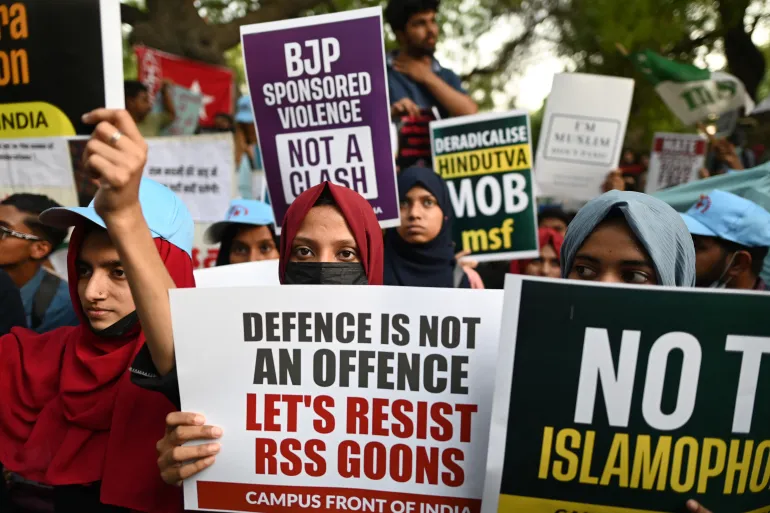On the occasion of the World Day of Social Justice, concerns have arisen regarding the discriminatory treatment of minorities in India under the Modi government.
Highlighted in a report by the Kashmir Media Service, the Muslim, Christian, Dalit, and Sikh communities express profound fear and insecurity stemming from systemic oppression and discriminatory policies. These concerns are echoed by Human Rights Watch (HRW), which points to laws such as the Citizenship Amendment Act (CAA) and the National Register of Citizens (NRC) as examples of marginalization.
Meenakshi Ganguly, the South Asia director at HRW, has criticized these policies, stating, “They create a two-tier system of citizenship that undermines the equal rights of all Indians.”
Global rights watchdogs have also voiced their apprehensions:
Amnesty International, in its 2023 Annual Report, asserts, “[India] authorities must end discriminatory policies and practices that violate the rights of Muslims, Christians, Dalits, and other minority groups.”
Human Rights Watch in its 2023 World Report emphasizes, “The [Indian] government should repeal discriminatory laws and policies, end discriminatory policing practices, and hold accountable those responsible for human rights abuses.”
The United Nations Human Rights Council, through Resolution 49/17 in 2022, expresses concern about “alleged discriminatory laws and policies, hate crimes, and acts of violence targeting minorities, including religious minorities, Dalits, Adivasis…persons in India.”
The plight of minorities in India reflects historical legacies, intricate social dynamics, and diverse interpretations of policies and events. Hindutva leaders openly incite violence against minorities, particularly Muslims, fostering an atmosphere of fear and insecurity.
With attacks targeting minorities on the rise, the gulf between India’s professed ideals and its tangible actions widens. Muslims, Dalits, Sikhs, and Christians confront discrimination and violence, prompting questions about India’s commitment to democracy and secularism.
The global community is urged to intervene and address the systematic violation of human rights in India. The struggle for social justice among India’s minorities serves as a litmus test for the international community’s dedication to fairness and equality for all.—INP









